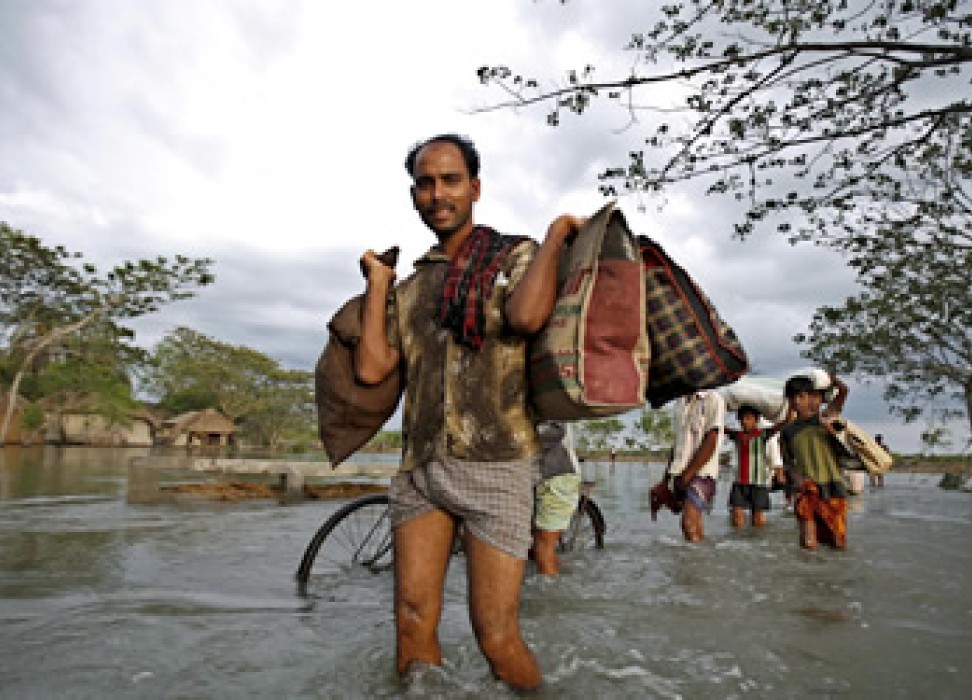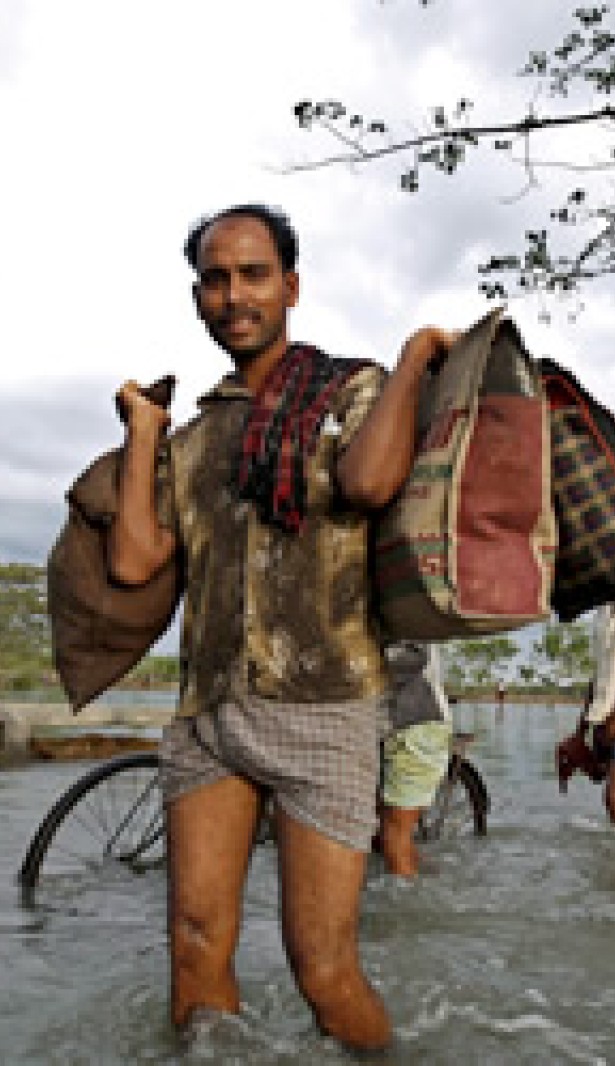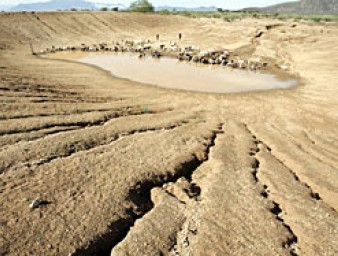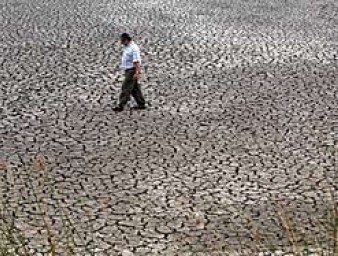Losing your land to climate change
23 October 2017

As a youth leader in the island state of Kiribati, 27-year-old Rae Bainteiti is working to empower youth in his country to engage in the toughest fight of his generation: To survive the impacts of climate change.
For Kiribati and other small island States in the Pacific, the slow-onset impacts of climate change, such as sea-level rise and erosion, along with cyclones and other extreme-weather events pose critical threats to their islands, their communities and their very existence.
“Relocating means having no home to go back to. It means leaving your land and your country for good and severing ties to all that is important to you as a people,” Bainteiti told the Human Rights Council at a recent intersessional panel discussion on climate migration in Geneva. “Such a move would threaten our sovereignty, our culture, our identity and all our fundamental human rights.”
The UN Human Rights Office is working with organizations like the Kiribati National Youth Association of NGOs to promote their call to international leaders to address urgently the human rights implications of displacement caused by climate change.
Since 2008, an average of 22.5 million people have been displaced each year by weather and climate-related disasters. Global temperatures and sea levels are expected to rise significantly by the end of the century, placing small island states like Kiribati in especially precarious conditions. Comprising 33 coral atolls with a total landmass of only 811 square kilometres, Kiribati is the lowest-lying country on the planet, sitting just two meters above sea level. As their coastline retreats with the rising sea level, the people of Kiribati are increasingly vulnerable.
“We consider migration as a last resort. But if we have to migrate, we want to be able to do this with dignity. We want to ensure our rights will be recognized wherever it is we would have to move,” said Bainteiti. “Any relocation would have to be planned properly so that even though we may lose our country and our citizenship, we don’t want to be labelled or treated as second-class citizens in our new home.”
The UN Human Rights Office, in collaboration with the Platform on Disaster Displacement, is preparing a study that examines the slow onset of climate change processes and their implications for communities that must relocate in response to climate change.
“While international human rights law provides protection of the fundamental rights and dignity of all people on the move, gaps persist in the understanding and implementation of protection needs for those who are moving in the context of climate change,” Deputy High Commissioner for Human Rights Kate Gilmore told the Human Rights Council. “It is the poorest of people who have contributed the least to the drivers of global warming that are at the forefront of the unforgiving impacts of climate change.”
Gilmore urged Member States to address the protection needs of especially vulnerable communities who must migrate in order to survive the impacts of climate change and to ensure that national and international migration and climate policies are consistent with existing human rights agreements, standards and principles.
“Climate change poses the greatest human rights challenge of our time,” said Bainteiti. “Wherever it is we must move, we need to know that our basic rights will be respected – our right to housing, to jobs, to health, to education. Our right to be treated with dignity. These are fundamental rights for all human beings that we don’t want to lose if we have to leave our land because of climate change,” said Bainteiti.
23 October 2017



